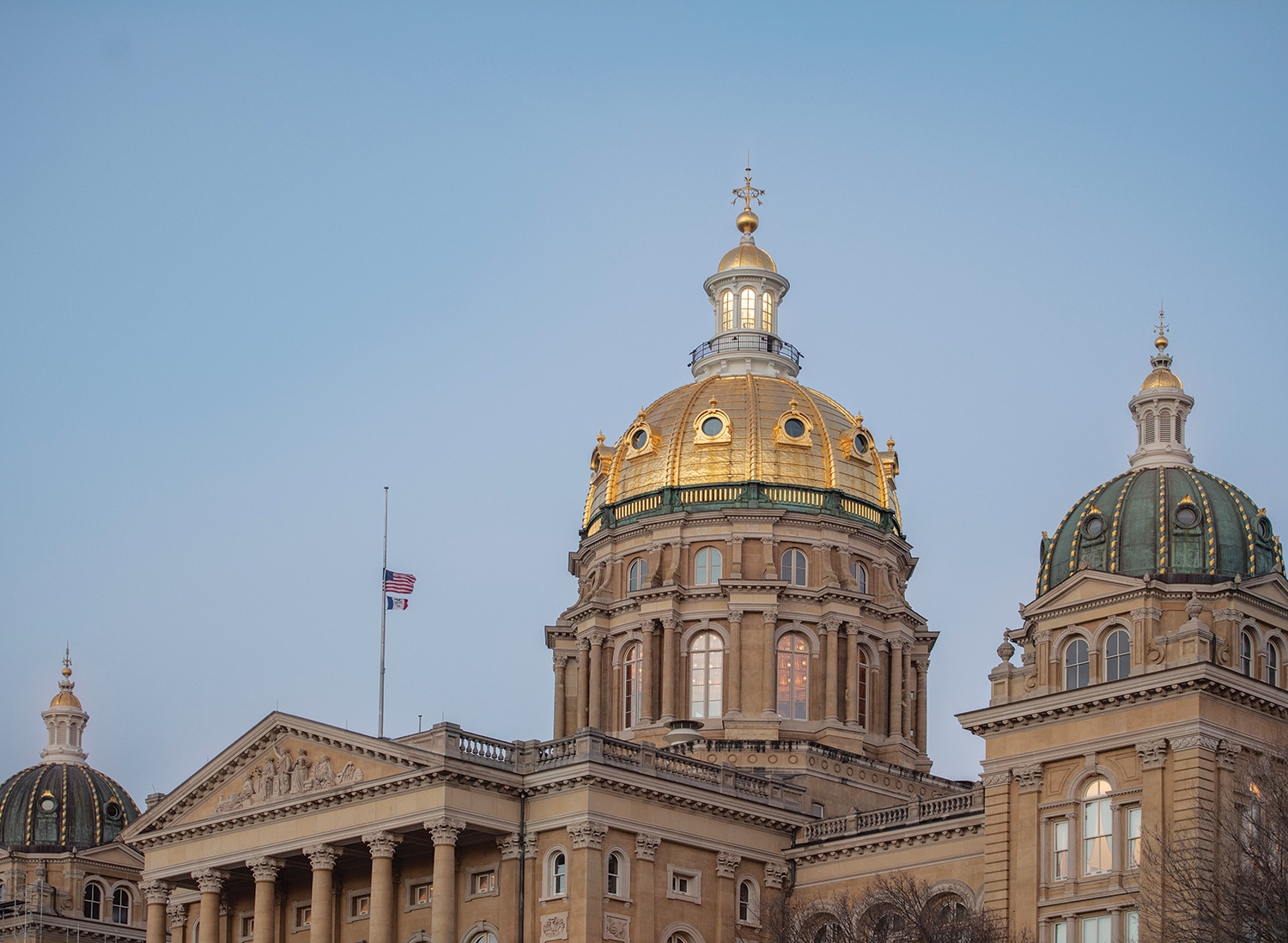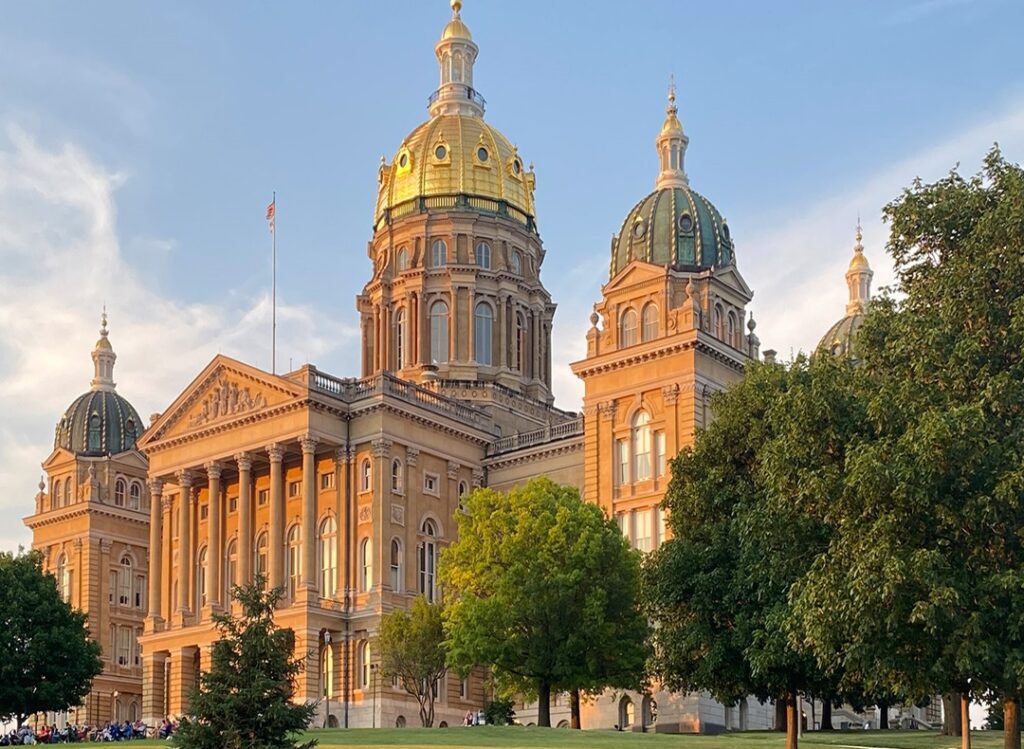Lawmakers’ predictions, priorities for 2024 session
A focus on taxes, child care and large-scale development

Mike Mendenhall Jan 9, 2024 | 6:00 am
7 min read time
1,594 wordsEconomic Development, Government Policy and LawIowa lawmakers returned to Des Moines this week to start the 2024 legislative session with agendas that include a possible faster timetable for state income tax reduction, enhanced child care aid, affordable housing solutions, and incentives for energy generation and large-scale development projects.
Republicans will almost certainly drive the agenda as they maintain their supermajority hold on both chambers in the General Assembly and the governor’s office, while Democratic leaders say they will continue to push their own priorities and are “not just up there to vote no.”
The Business Record spoke with lawmakers and covered their comments to Central Iowa business organizations and nonprofits before the start of the session and prior to Gov. Kim Reynolds’ Condition of the State address to learn about their priorities and expectations for 2024.
The following are compilations of the interviews and lawmakers’ comments from the pre-legislative events.

Rep. Megan Jones, R-Sioux Rapids
Jones said the biggest issue she faces while trying to gain support from her GOP colleagues to make more state child care aid available is explaining what modern child care is.
“It seems so simple, right? These are the people who watch our kids. It’s so much more than that. It crushes my momma heart every time I hear one of my colleagues say, ‘Well, lifeguards watch 20 kids at a time, why can’t these child care providers?’ It’s a totally different job. You can’t just compare those professions,” Jones said during a panel discussion Dec. 14 at the United Way of Central Iowa’s annual legislative advocacy agenda event.
“It’s a different skill set.”
The District 6 Republican, who chairs the Iowa House Administrative Rules Review Committee, introduced several pieces of legislation during the 2023 session aimed at Iowa’s child care ecosystem, which many Iowa business groups consider a key factor in workforce development.
During the United Way panel discussion, Jones appeared ready to make another push. One bill she proposed would permanently extend a COVID-19 pandemic-era rule that allows centers to receive state child care assistance reimbursement based on enrollment numbers and not be penalized for child absences.
According to Dave Stone, United Way of Central Iowa advocacy officer, the state currently allows a child care center six absences per month before state reimbursement payments are reduced.
Jones said after the COVID-19 rules expired, she spoke with the director of a child care center in her House district who was “spending hours … counting sick leave for toddlers” in order to comply with the reimbursement program.
“We definitely need to reevaluate that program. It worked well during COVID. Let’s learn from what we all went through,” Jones said.
She has also introduced legislation that would extend an Iowa Department of Health and Human Services pilot program that automatically enrolls child care centers for state assistance.
Jones, a mother of five school-age children, said her household, which includes two working parents, relies on child care.
Jones said she supports more infrastructure grants to expand child care centers, particularly in rural and small communities.
“But we can’t expand if we don’t have workers there,” Jones said. “And so we do need to make their wages more competitive.”
According to United Way, 76% of Iowa households with children younger than 6 years old have all available parents working, and the average child care cost per month is $1,122.
During the 2023 session, the Legislature raised the income threshold for families to qualify for child care assistance to 160% of the federal poverty level, up from 145%.
Iowa lawmakers also increased the reimbursement rate to child care centers last year by 7%. But Child and Families of Iowa CEO Janice Lane, who appeared on the United Way panel with Jones, said the rate is still too low for child care facilities to pay workers a livable wage, offer advancement opportunities and effectively compete with other industries for workers.
The average child care worker in the state makes $10.76 per hour, according to United Way.
Jones has also supported legislation to exempt child care workers from paying state income tax.
“They don’t make a whole lot of money anyway, but whatever tax you would stop collecting from them is going to mean the absolute world to them,” Jones said.
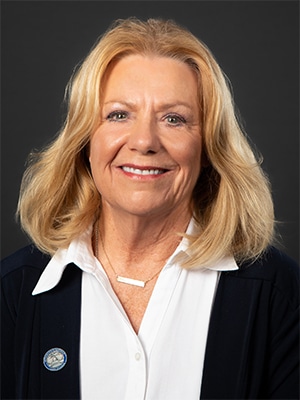
Senate Minority Leader Pam Jochum, D-Dubuque
Jochum said the Senate Democrats’ goal in the 2024 session is to work with Republicans to move an agenda forward that can reduce the cost of living in the state of Iowa and addresses affordable child care and housing.
During a lawmaker panel discussion Dec. 12 at the Greater Des Moines Partnership’s 2024 State Legislative Leadership Breakfast, Jochum said she expects legislation that will increase eligibility for Iowa’s child care assistance program, changing the income requirement from 160% of the federal poverty level to 200%.
She also wants to see state policy that will allow child care centers to increase pay and provide workers a living wage.
“Now if our kids are our most valuable resource, I would think we would want to pay them a wage that reflects their value,” Jochum said.

House Assistant Majority Leader David Young, R-Van Meter
Young said during the Partnership’s panel discussion that the Legislature will have a “vociferous debate” on further action to reduce taxes during the 2024 session.
“It’s kind of like tax limbo, you know? How low can you go, and at what rate and speed?” Young said.
He told the Business Record after the event that members are also waiting to hear what Reynolds could say about tax issues in her annual Condition of the State address. But proposals in the 2024 session could include further reducing Iowa’s tax rates or accelerating the timetable to reach 3.9% more quickly, Young said.
“The goal here is, in the most responsible manner, make sure that we are giving back as much as we can to those who earn those dollars – the taxpayers, the workers,” Young said.
Young said he expects the Legislature to revisit the Major Economic Growth Attraction program (MEGA) that would provide incentives to large companies outside Iowa – including biosciences, advanced manufacturing, and research and development groups – to move to or expand in Iowa.
“We believe that we should revisit that,” Young said during the Partnership’s panel discussion. “And maybe tweak it a little bit or maybe have a two-tier system where you have those giant sites, and then maybe some more regional sites in some more rural areas to kind of spread that out statewide in rural and metropolitan areas.”
The program would provide state support to projects that would develop 250-acre-plus sites and bring $1 billion in investments.
“So we can take advantage of the workforce that is out there that is wanting to work and match them up with those skills and the apprenticeships and a lot of these jobs that are out there that we need to fill,” Young said.
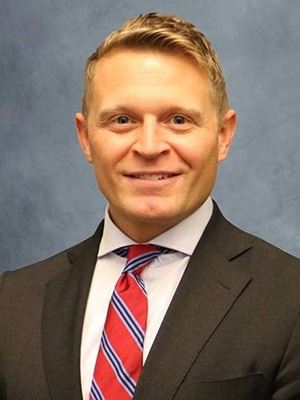
Sen. Mike Bousselot, R-Ankeny
Bousselot said he’d like to see a push by lawmakers this session to “augment” the state’s advanced rate-making policy for investor-owned utilities to expand incentives for power generation to include emerging energy technologies.
“We have had tremendous investment into renewables, but we also need to remember the wind doesn’t always blow and the sun doesn’t always shine,” Bousselot told the Business Record in an interview Dec. 12. “And that’s where bringing additional power generation sources like nuclear, like some hydrogen, like some of these cutting-edge technologies could be a beneficial addition to our energy mix.”
Currently, Iowa provides incentives for renewable energy development projects, but Bousselot’s proposal would focus on other emerging technologies that are gaining traction in other parts of the U.S.
According to an analysis by the federal U.S. Energy Information Administration, nearly 66% of Iowa’s total net electricity generation came from renewable sources in 2022, predominantly wind.
During the Partnership’s legislative panel discussion, the Senate District 21 Republican said Iowa’s advanced rate-making policy has not seen major changes in 20 years.
Bousselot said energy costs can be a “major factor” for companies considering locations for development projects, particularly energy-intensive manufacturing facilities.
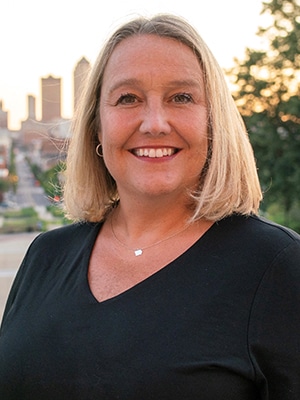
House Minority Leader Jennifer Konfrst, D-Windsor Heights
Konfrst said the Iowa House Democrats have a “proactive” agenda for the 2024 legislative session, and her minority party is “not just up there to vote no.”
“It’s about putting aside division and trying to actually get something done,” Konfrst said during the Partnership’s panel discussion. “So this year, we are focusing on additional ways to help Iowans lower costs. We think it’s a robust problem and one that takes more than one solution. So we’re looking at everything to lower costs and making sure that everyone recognizes the benefits and is able to enjoy the fruits of those reductions and costs in their lives.”
She said Democrats in the Iowa House have introduced legislation to expand a first-time homebuyers assistance program as well as a grant program to help people invest and remain in their homes. Konfrst said during the event that she was uncertain if the Republican majority would take up the bills.
The GOP currently holds a 64-36 seat majority over Democrats in the House.
According to Konfrst, Iowa will need 25,000 new housing units in Iowa by 2030 across rural, urban and suburban communities.
“A lot of those expenses are so high that people can’t afford them. But when you put them out over the course of a grant program, we can help people knock down those costs, get new windows, get a new roof, stay in the neighborhood, keep their home nice,” she said.

Mike Mendenhall
Mike Mendenhall is associate editor at Business Record. He covers economic development, government policy and law.

